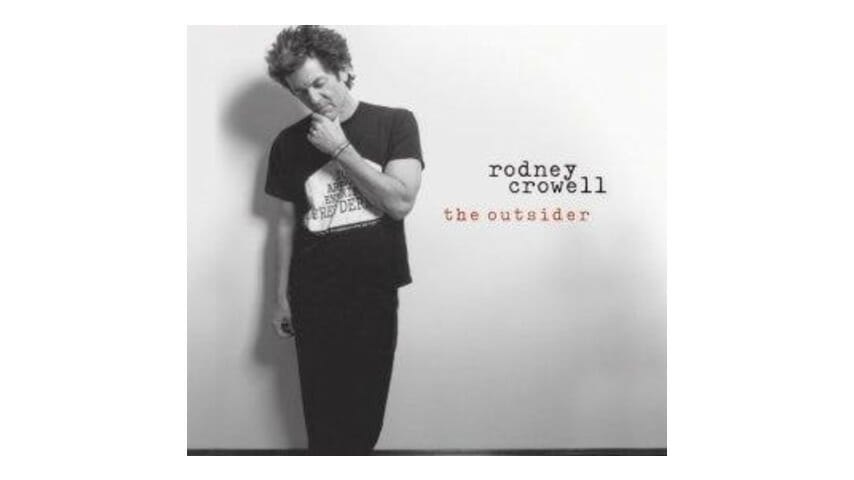
Righteously Pissed Off: Nashville fixture’s musical diatribe yields mixed results
If Steve Earle is the most pugnacious political songwriter of the post-9/11 era, Rodney Crowell—with new release The Outsider, his third since 2001’s masterful comeback The Houston Kid—stakes a claim to being the wisest. Whereas Kid gave Crowell an outlet for some pent-up autobiographical material, The Outsider finds him in a more strident mood, venting on everything from Enron and Iraq to the Dixie Chicks. Even still, he never stoops to the level of Earle’s expletive-peppered spleen, and that alone makes Crowell a better counterweight to the jingoistic mood plaguing Nashville since Toby Keith’s The Angry American. But neither does he match the simple, eloquent statement made by Buddy Miller’s timely cover of “With God on Our Side,” which, come to think of it, would’ve been a nice place to put a capper on pop polemics for a while.
The Outsider opens with a couple fastballs. “Say You Love Me,” a three-chord rave-up, sounds for all the world like The Replacements backing Roger McGuinn. The “Lust for Life” groove driving “The Obscenity Prayer” puts an impatient edge to Crowell’s general crankiness. “Prayer” starts promisingly enough, with a classic Randy Newman move—put opinions you despise in the mouth of your song’s main character. But Crowell overstates his point by a Texas mile, constructing a gigantic Ted Rall cartoon version of bourgeois capitalist piggery: “I don’t understand … You’re trying to make me feel some compassion / Man, that is so out of fashion.” Yeah, Rodney, that dude’s an asshole. Nooo doubt about it.
But Crowell isn’t content to merely raise political consciousness. More than any of his previous records, The Outsider aims to raise consciousness itself, at times veering straight into metaphysical territory. “Dancing Circles Round The Sun” showcases Crowell’s newfound affinity for stoic philosophy, and “Ignorance is the Enemy” finds him pontificating like a man on the edge of The Abyss. “Enemy” doesn’t suffer as much from its burdensome archness as it does from its crippling abstractness. Weaving hints of Gram Parsons’ “In My Hour of Darkness” with spoken-word aphorisms delivered alternately by John Prine and Emmylou Harris, “Enemy” tells us everything and nothing: ignorance is bad, mercy and compassion are good, life is hard and we all need Help From Above. It’s a risky artistic choice for Crowell, but not all risks pay off, and this one doesn’t come close to breaking even.
Crowell is one of his generation’s most accomplished songwriters, and routinely transcends himself when he sticks to straightforward narrative and confessionalism. But The Outsider consistently grabs at transcendence only to watch it recede. By the end of the record Crowell himself seems all too aware of his limitations—the best track is “Beautiful Despair,” which begins with the self-deprecating confession most brilliant songwriters own up to eventually: you’ll never write like Dylan. And as if to prove his point, Crowell covers one of The Bard’s best, “Shelter from the Storm,” which, in contrast to tracks like “Enemy,” serves mainly to accentuate just how much of The Outsider’s ambition has gone completely unrealized.